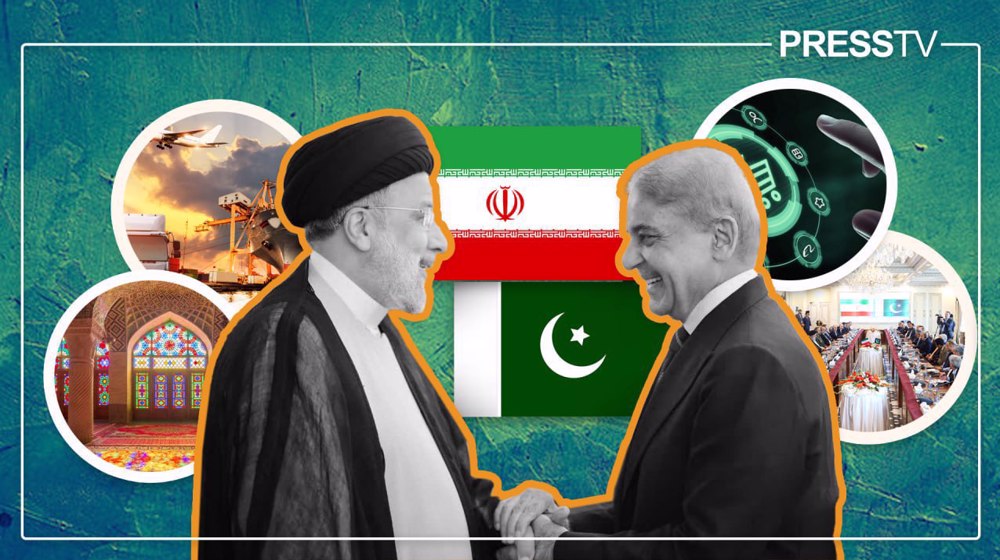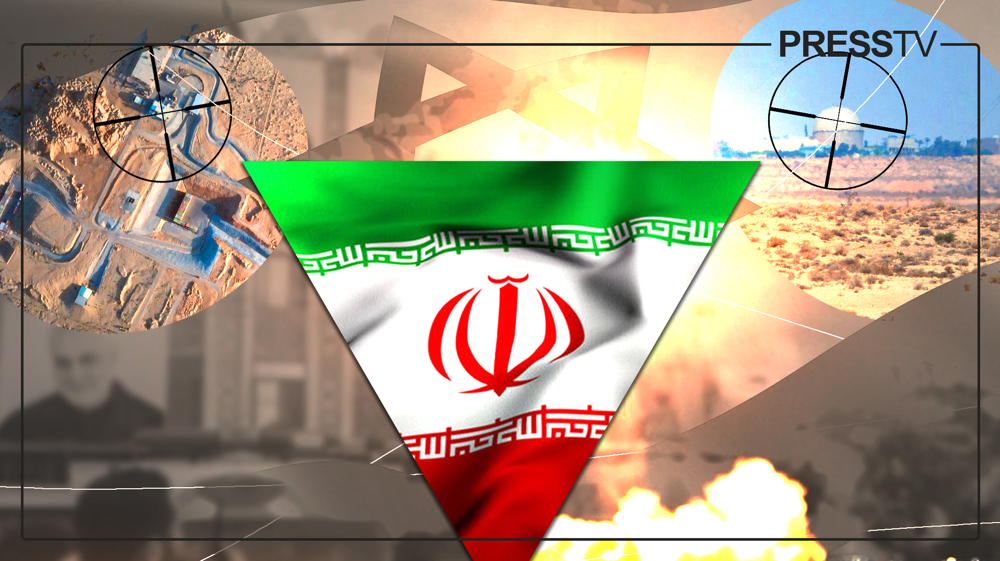Dealing with America
By Hossein Jelveh
(This article has been updated to include new developments.)
Former US President Barack Obama would often remark after securing a nuclear deal with Iran that the agreement “is not built on trust, it is built on verification.” He would repeatedly invoke the strong verification regimes in the deal to argue that Washington was not putting its trust in Tehran.
Iran was no less clear on the matter. In fact, the idea to take the deal to the United Nations Security Council to have it enshrined in a legally-binding resolution may have been Iranian Foreign Minister Javad Zarif’s idea. If the verification regimes that President Obama talked about were the US’s way of ensuring Iranian compliance, the endorsement of the deal at the UNSC — by all 15 members, including America — was obviously reassurance to Iran that non-compliance by other parties would carry some form of a price.
The question of trust — or lack thereof — was central for a reason. Iran and the US had been each other’s main adversaries for almost four decades. Short of war, the US had exploited every tool to harm Iran one way or another. For the Islamic Republic, the US continued to be “the Great Satan.”
But countries make sober calculations about when to talk to whom, and whether to talk at all. And if you looked more closely, Iran and the US had trusted each other at a very basic level — by agreeing to talk to one another in the first place. They might not have admitted it, but once they sat down to make the deal, once they made the deal, Iran and the US had trusted each other at that basic degree.
If Iran and the US had Kelvin zero confidence that talking to the other party was the right thing to do at the time, and if they were adequately convinced that their interlocutor was too intransigent to expect a deal with, why did they bother to talk at all?
Why questions of the past matter again now: the case of the Iran deal
When Iran negotiated the nuclear deal with the US, it negotiated with President Obama’s administration, which by and large adhered to its contractual commitments to Iran. When political novice Donald Trump became America’s president, he started an official, unabashed campaign of bashing the deal even as he grudgingly kept postponing a threat to rip it up.
As he nominates CIA director and known Iran hawk Mike Pompeo to head the US State Department, dismissing a relatively more moderate voice in former Secretary Rex Tillerson, the Iran deal debate is vigorously rekindled.
Relevant questions have also been raised as reports indicate that North Korea may be willing to strike a deal of its own with the US.

Pompeo has been blunt in his public stance on the Iran deal, at times verging on farce. Last July, making up what he thought was a smart simile about Iranian compliance with the nuclear deal, he compared Iran to a bad tenant at a property.
“They don’t pay the rent, you call them, and then they send a check and it doesn’t clear,” Pompeo said. “And then the next day, there’s this tired old sofa in the front yard.”
To anyone following the Iran nuclear deal saga, that description is bull excrement. The International Atomic Energy Agency — the very institution whose rigorous monitoring regime President Obama once described as “the most comprehensive inspection and verification regime ever negotiated to monitor a nuclear program” — has in report after report verified full Iranian compliance.
You would not expect the CIA chief to strike a diagonally opposite note unless you know he has a political agenda and no interest in facts.
But facts are stubborn things. And if you disregard them for political reasons, you look deceitful and unreliable.
The proliferation of unreliability
Tillerson and US Defense Secretary Jim Mattis have often been portrayed in the US media as counterweights to President Trump’s most impulsive behavior, including on the Iran deal. Both Tillerson and Mattis are known to have opposed a US withdrawal from the agreement with the Islamic Republic, taking a different line than that of their boss. (Trump referenced that difference of opinion as a reason why he dismissed Tillerson. “When you look at the Iran deal,” the US president said, “I think it’s terrible. I guess he (Tillerson) thought it was OK.”)
But now that Tillerson is out, Trump and Pompeo, with whom Trump believes he has “a very similar thought process,” may carry a more hawkish weight than Mattis may be able to check on his own. That means they may be able to argue more strongly in opposition to the deal and may eventually pull the US out despite international pressure not to do so.
Add to this the fact that another Iran hawk just joined President Trump’s national security team: John Bolton.
True, President Trump had once rejected Bolton for a White House job because — believe it or not — he didn’t like Bolton’s mustache. But former President George W. Bush’s ambassador to the UN is now President Trump’s incoming national security adviser. (And who knows? Bolton may lose the mustache.)

Every indication, thus, is that the US may be heading toward a unilateral withdrawal from the Iran deal — a move that would be in contravention of not only the deal itself but also the Security Council resolution, as well as an affront to America’s European allies who have been strongly advising it against withdrawal.
Iran, meanwhile, has long been prepared for that eventuality; and it may have already made its peace with it. On March 14, Iranian Deputy Foreign Minister and nuclear negotiator Abbas Araqchi said Iran had notified Europe that if the US withdraws from the Iran deal, so will Iran.
That would perhaps be best for all. The Iran deal is a complex, highly technical deal that took 22 months to negotiate. If one party suddenly wishes to renege on its obligations and sabotage the implementation of obligations by other parties, there had better be no deal to implement at all.
A first ‘deal’
Just recently, President Trump’s administration struck a trade deal with South Korea. That deal “extends tariffs for South Korean truck exports [by 20 years to 2041] and restricts, by nearly a third, the amount of steel that the South can export to the United States,” and “also doubles the number of vehicles the United States can export to South Korea without meeting local safety requirements,” according to The New York Times. In return, “South Korea — the third-biggest exporter of steel to the United States in 2016 — is permanently exempt from the White House’s global tariffs of 25 percent on steel and 10 percent on aluminum imports.”
It was not clear how — and if — Seoul had gained confidence that the deal would be sustained when another president takes over in America. But the South Korean leadership must have come to terms with the prospect of being constantly at the mercy of a deal-breaking America — even if for short-term economic benefits.
While the deal with South Korea may reinforce President Trump’s image as a protectionist deal-maker among his most ardent domestic supporters, the American president’s heavily self-centered and coercive approach to deal-making has annoyed other countries, including European economic giants.
On Tuesday, French President Emmanuel Macron took aim at exactly that approach.
“We talk about everything, in principle, with a friendly country that respects the rules of the WTO. We talk about nothing, in principle, when it is with a gun to our head,” he said.

The year of ruling dangerously
If President Trump’s first year in office is to be summed up, it is best described as a year of breaking deals — and American promises. There is nothing original about it.
“A house that takes several man-years to build can be destroyed in an hour by any young delinquent who has the price of a box of matches,” writes Thomas C. Schelling, the renowned foreign policy scholar, in his book “Arms and Influence.”
The administration of President Trump has already either withdrawn or announced an intention to withdraw from, among others, the Paris Climate Accord (signed off on by 195 world countries); the North American Free Trade Agreement (NAFTA), comprising the US, Canada, and Mexico; and the Trans-Pacific Partnership (TTP), which is a 12-nation deal.
I would say that is one impressive résumé but I would be playing with the lingual boundaries of the word “impressive.”
Tried and (futilely) trusted?
That is history for North Korea to be mindful of. If the Trump White House can defy international law by possibly unilaterally withdrawing from the multilateral Iran deal, if it can go around scrapping all those other deals, and if it is provably engaged in the naked pursuit of its interests so aggressively as to harm those of other countries, is it prudent to expect a deal with it?
Foreign Minister Zarif seemed to offer his response to that question on Tuesday.
“[If the word of] a president is only credible as long as that president is in office, then I don’t think anybody would be interested in reaching an agreement with the United States because they’re bound to be violated within four to eight years,” he said.
It is not like President Trump is a serious deal-maker, either. A former Japanese diplomat, referring to the hasty announcement by Trump of a meeting with North Korean leader Kim Jong-un, anonymously told Reuters, “As for Washington, Trump is such an unpredictable guy. If anything will help elevate his approval domestically, he’ll jump [at it].”
The question then for Pyongyang to ponder is whether it is worthwhile to put in the US even the basic trust that is necessary to sit at the same negotiating table with someone.
Am I making policy recommendations for action in one direction or another? Absolutely not. I also certainly hope that North Korea will find genuine interest on the part of the US in resolving its differences with Pyongyang, that both sides will proceed to actually do so, and, more importantly, that Washington will keep its word across administrations.
But the North Koreans will have every reason to suspect that a potential deal with the US will stand. And while I hope for the best, I advise preparedness for the worst.
Let us trust that the North Koreans will make the choice that is best for them.
(The views expressed in this article do not necessarily reflect those of Press TV.)
What to expect after President Raeisi's visit to Pakistan
China describes Iran as ‘strategic partner' in West Asia
April 25: ‘Axis of Resistance’ operations against Israeli occupation
Hezbollah hits Israeli military sites near border with rockets, drones
Rwandans say UK deportation 'another brutal manifestation of neo-colonialism'
US troops begin construction of controversial pier off Gaza
Israel ‘spoofs’ GPS signals, endangering flight safety amid Gaza war: Report
Iran urges Security Council to address 'belligerent' Israeli atrocities










 This makes it easy to access the Press TV website
This makes it easy to access the Press TV website